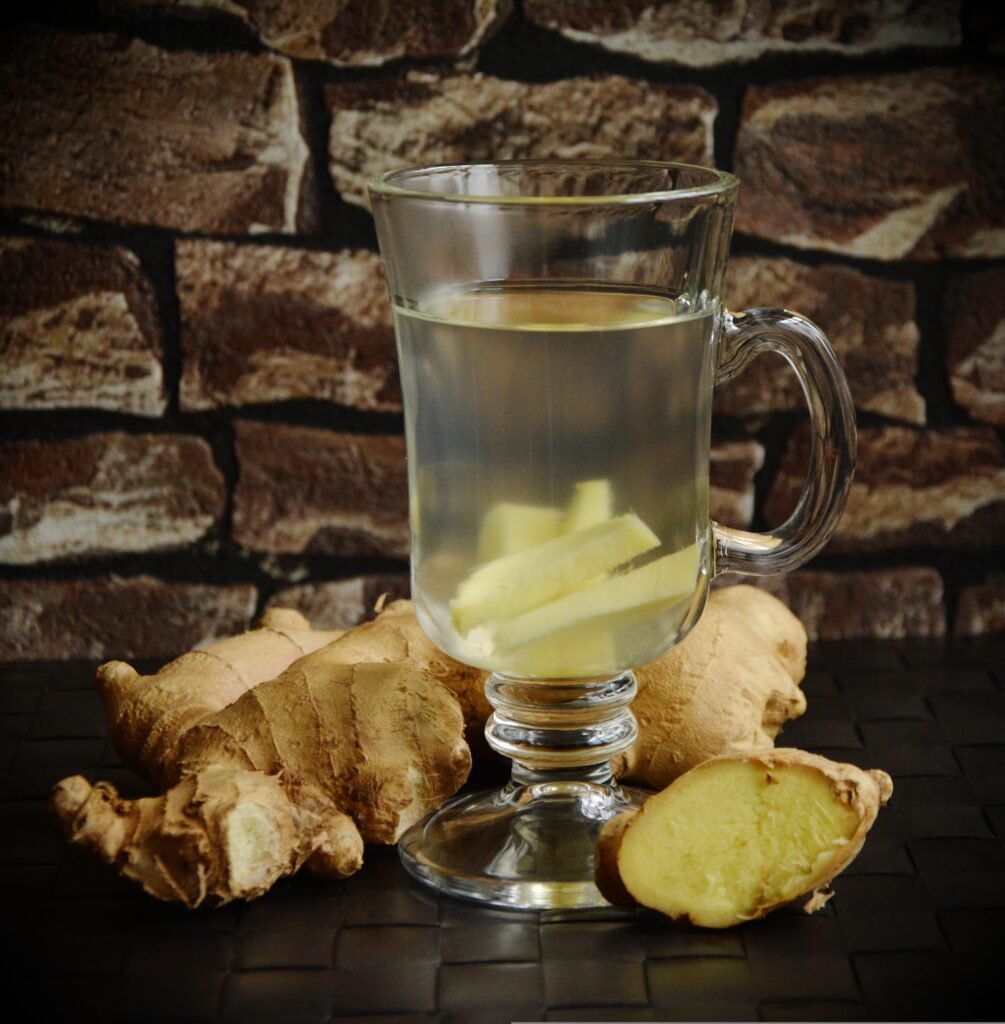Ginger: A Powerful Spice with Remarkable Health Benefits
Ginger, derived from the rhizome of the Zingiber officinale plant, holds a cherished place in culinary traditions and natural medicine. Native to Asia—especially India, China, and Japan—ginger has gained global popularity for its unique flavor and nutritional benefits. Cultivated across South America, Africa, and the Middle East, this versatile spice is renowned for its incredible health benefits. Let’s dive into the scientifically-backed reasons why ginger should become a staple in your diet.
Key Health Benefits of Ginger
1. Boosts Immune System
Ginger is packed with bioactive compounds like gingerol, known for its potent antibiotic, anti-inflammatory, and antiviral properties. These compounds enhance immune cell activity, increase antibody production, and help the body fend off infections. Research from the University of Maryland Medical Center suggests that regular ginger consumption can strengthen the immune system, particularly during cold and flu season.
2. Rich in Antioxidants
Ginger contains powerful antioxidants such as gingerol and shogaol, which neutralize free radicals and reduce oxidative stress—a major contributor to chronic illnesses like cancer and cardiovascular diseases. According to the National Center for Complementary and Integrative Health, ginger’s antioxidants protect against age-related conditions and promote overall health.
3. Boosts Metabolism and Aids Weight Loss
Ginger’s thermogenic properties naturally boost metabolism. Studies show that ginger can increase calorie expenditure and fat oxidation, aiding in weight loss when combined with a healthy diet and exercise. Research highlights ginger’s role in regulating appetite hormones, making it a valuable tool for managing cravings. For example, a 2007 study observed improved metabolic rates and fat reduction in participants consuming ginger.
4. Improves Digestive Health
Ginger is celebrated for its digestive benefits. It alleviates symptoms like bloating, constipation, and nausea by enhancing gastric motility and reducing inflammation in the digestive tract. A 2013 study demonstrated ginger’s effectiveness in speeding up stomach emptying, making it a trusted remedy for issues such as morning sickness or indigestion.
5. Regulates Blood Sugar Levels
For individuals managing type 2 diabetes, ginger can stabilize blood sugar levels by improving insulin sensitivity. Studies reveal that ginger supports glycemic control, reducing the risk of diabetes-related complications. According to Liao et al. (2013), incorporating ginger into a daily routine may significantly benefit metabolic health.
6. Lowers Bad Cholesterol Levels
Ginger has been shown to lower LDL (“bad”) cholesterol, reducing the risk of cardiovascular diseases. By improving lipid metabolism, ginger promotes heart health. A 2014 study revealed consistent reductions in LDL cholesterol levels among participants who consumed ginger regularly.
7. May Reduce Cancer Risk
Rich in anti-inflammatory and antioxidant compounds, ginger shows promise in cancer prevention. Laboratory studies indicate that compounds like 6-shogaol may inhibit the growth of cancer cells. A review by Bordoni & Varoni (2018) suggests that ginger may help reduce risks of cancers such as pancreatic, colorectal, and liver cancer.
8. Effective Against Nausea
Ginger is a time-tested remedy for nausea, particularly during pregnancy or chemotherapy. Clinical trials, including one by Zick et al. (2008), confirmed ginger’s ability to reduce both severity and frequency of nausea. Ginger tea or capsules are often recommended for quick relief.
9. Relieves Menstrual Pain
Research indicates that ginger’s anti-inflammatory properties make it as effective as over-the-counter pain relievers for reducing menstrual cramps. A 2014 study showed that consuming ginger during menstruation significantly alleviates pain and discomfort, offering a natural alternative to medications.
10. Natural Pain Reliever
Gingerol, a key compound in ginger, acts as a natural painkiller. Studies, such as those by Gordon et al. (2011), highlight ginger’s effectiveness in easing muscle soreness, arthritis pain, and post-workout discomfort. Regular ginger intake may provide relief without harmful side effects.
Practical Tips for Incorporating Ginger Into Your Diet
- Forms of Consumption: Ginger can be used fresh, as tea, in smoothies, or as a powdered spice in meals. Try adding fresh ginger to warm water with honey or blending it into your post-workout shake for added health benefits.
- Recommended Dosage: Consuming 1-3 grams of ginger daily is sufficient for most people. This amount can be split throughout the day to maximize its benefits.
- Potential Side Effects: While ginger is generally safe, excessive intake may cause gastrointestinal issues like heartburn or diarrhea. Those on blood-thinning medications or with conditions like gallstones should consult a doctor before consuming ginger regularly.
Conclusion
Ginger’s versatility, flavor, and array of health benefits make it a must-have in any diet. From improving digestion to enhancing immunity and even reducing the risk of chronic diseases, this ancient spice continues to prove its worth in modern times. By incorporating ginger into your daily routine, you can harness its powerful properties and take a step toward better health.



